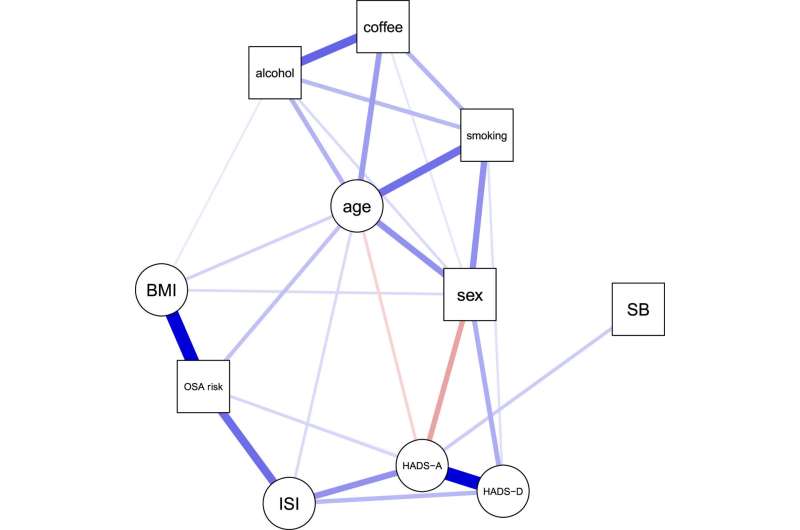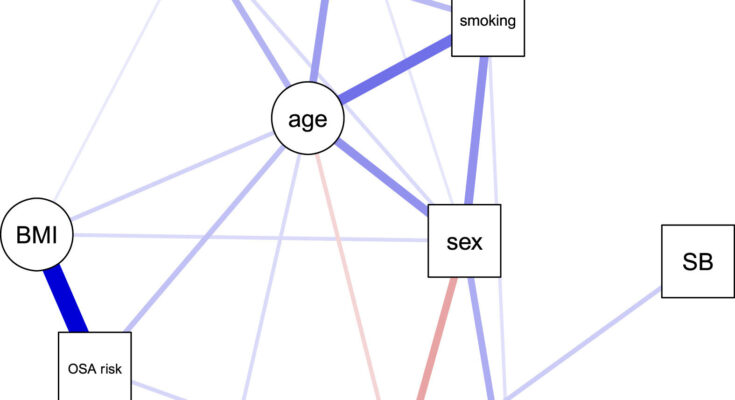
Researchers studied the association between self-reported sleep bruxism, insomnia and their potential risk factors, such as depression and anxiety. The results showed that, although sleep bruxism has no direct association with insomnia, anxiety is a linking factor between these variables.
Bruxism is a muscular activity of the jaw characterized by clenching or grinding the teeth or pushing the jaw, which can occur during sleep (sleep bruxism) or during wakefulness (awake bruxism). Sleep bruxism (SB) may be associated with biological, psychological and lifestyle factors.
The psychosocial factors most reported in SB studies are stress, anxiety, depression, and social factors such as workplace dissatisfaction, although evidence for the role of these factors is not definitive. Also lifestyle factors such as smoking, alcohol consumption and drinking coffee can be considered as risk factors for SB .
As comorbid conditions of SB, sleep-related disorders such as obstructive sleep apnea, restless legs syndrome or gastroesophageal reflux disease were also identified. In addition, insomnia has also been suggested as a comorbidity of SB.
Whereas previous studies have investigated associations between SB, insomnia, anxiety, and depression primarily univariately, researchers Thiprawee Chattrattrai, Tessa Blanken, Frank Lobbezoo, Naichuan Su, Ghizlane Aarab, and Eus J.W. Van Someren decided to analyze the associations between self-reported sleep bruxism and other variables, not only by univariate analysis, but also by multivariate logistic regression and network analysis.
In the paper published in the journal Sleep Medicine in March 2022, the team from the Netherlands Institute for Neuroscience, University of Amsterdam and Vrije Universiteit Amsterdam (Netherlands) and Mahidol University (Thailand) reports that questionnaires were administered to 2251 participants (352 with self-reported SB and 1899 without self-reported SB) from the Netherlands Sleep Registry on self-reported sleep bruxism, insomnia, depression, anxiety, smoking frequency and alcohol and caffeine consumption.
Although univariate analysis showed a positive association between sleep bruxism and insomnia, this association disappeared in the multivariate logistic regression model, that is, when age, psychological and lifestyle factors were considered. However, the multivariate model revealed an indirect link between sleep bruxism and anxiety.
“We concluded that, although self-reported sleep bruxism has no direct association with insomnia, anxiety may act as a bridging factor between these complaints, so when treating SB and insomnia, anxiety management should not be overlooked, asking for an interprofessional collaboration of doctors and dentists,” says Tessa Blanken, a researcher supported by the BIAL Foundation.
Thiprawee Chattrattrai et al, A network analysis of self-reported sleep bruxism in the Netherlands sleep registry: its associations with insomnia and several demographic, psychological, and life-style factors, Sleep Medicine (2022). DOI: 10.1016/j.sleep.2022.03.018
Provided by
BIAL Foundation
Citation:
Sleep bruxism, insomnia and anxiety—is there any link between them? (2022, December 21)
retrieved 22 December 2022
from https://medicalxpress.com/news/2022-12-bruxism-insomnia-anxietyis-link.html
This document is subject to copyright. Apart from any fair dealing for the purpose of private study or research, no
part may be reproduced without the written permission. The content is provided for information purposes only.
Source link



